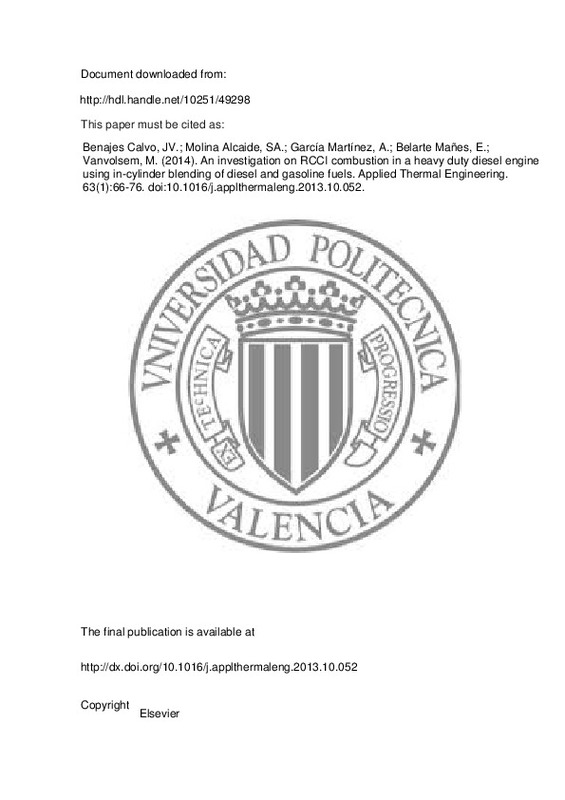JavaScript is disabled for your browser. Some features of this site may not work without it.
Buscar en RiuNet
Listar
Mi cuenta
Estadísticas
Ayuda RiuNet
Admin. UPV
An investigation on RCCI combustion in a heavy duty diesel engine using in-cylinder blending of diesel and gasoline fuels
Mostrar el registro sencillo del ítem
Ficheros en el ítem
| dc.contributor.author | Benajes Calvo, Jesus Vicente
|
es_ES |
| dc.contributor.author | Molina Alcaide, Santiago Alberto
|
es_ES |
| dc.contributor.author | García Martínez, Antonio
|
es_ES |
| dc.contributor.author | Belarte Mañes, Eduardo
|
es_ES |
| dc.contributor.author | Vanvolsem, Michel
|
es_ES |
| dc.date.accessioned | 2015-04-27T11:46:38Z | |
| dc.date.available | 2015-04-27T11:46:38Z | |
| dc.date.issued | 2014-02-05 | |
| dc.identifier.issn | 1359-4311 | |
| dc.identifier.uri | http://hdl.handle.net/10251/49298 | |
| dc.description.abstract | An experimental and numerical study has been carried out to understand mixing and auto-ignition processes in RCCI combustion conditions, using gasoline and diesel as low and high reactivity fuels, respectively. Three parametrical studies have been developed using a heavy duty compression ignition engine equipped with a direct injector and a port fuel injector, to be able to vary the in-cylinder fuel blending ratio. Besides, a detailed analysis in terms of air/fuel mixing process has also been performed by means of a 1-D spray model. It is found that combustion starts with the auto-ignition of the diesel injection and the air and gasoline entrained. Then, the temperature and pressure raise starts the flame propagation across the lean diesel and gasoline zones of the combustion chamber. As the Diesel/Gasoline fuel ratio is reduced, the ignition delay increases extending the mixing time and the first combustion stage gets lowered while the second one is enhanced. The advance of the diesel injection timing enlarges the mentioned effects over the combustion process. With respect to conventional neat diesel combustion, a slight reduction in terms of NOx and a very important reduction in terms of soot were achieved with the RCCI combustion. | es_ES |
| dc.description.sponsorship | The authors would like to thank VOLVO Group Trucks Technology for supporting this research. | en_EN |
| dc.language | Inglés | es_ES |
| dc.publisher | Elsevier | es_ES |
| dc.relation.ispartof | Applied Thermal Engineering | es_ES |
| dc.rights | Reserva de todos los derechos | es_ES |
| dc.subject | Reactivity Controlled Compression Ignition | es_ES |
| dc.subject | Dual Fuel combustion emissions | es_ES |
| dc.subject | In-cylinder fuel blending | es_ES |
| dc.subject.classification | MAQUINAS Y MOTORES TERMICOS | es_ES |
| dc.title | An investigation on RCCI combustion in a heavy duty diesel engine using in-cylinder blending of diesel and gasoline fuels | es_ES |
| dc.type | Artículo | es_ES |
| dc.identifier.doi | 10.1016/j.applthermaleng.2013.10.052 | |
| dc.rights.accessRights | Abierto | es_ES |
| dc.contributor.affiliation | Universitat Politècnica de València. Instituto Universitario CMT-Motores Térmicos - Institut Universitari CMT-Motors Tèrmics | es_ES |
| dc.contributor.affiliation | Universitat Politècnica de València. Departamento de Máquinas y Motores Térmicos - Departament de Màquines i Motors Tèrmics | es_ES |
| dc.description.bibliographicCitation | Benajes Calvo, JV.; Molina Alcaide, SA.; García Martínez, A.; Belarte Mañes, E.; Vanvolsem, M. (2014). An investigation on RCCI combustion in a heavy duty diesel engine using in-cylinder blending of diesel and gasoline fuels. Applied Thermal Engineering. 63(1):66-76. doi:10.1016/j.applthermaleng.2013.10.052 | es_ES |
| dc.description.accrualMethod | S | es_ES |
| dc.relation.publisherversion | http://dx.doi.org/10.1016/j.applthermaleng.2013.10.052 | es_ES |
| dc.description.upvformatpinicio | 66 | es_ES |
| dc.description.upvformatpfin | 76 | es_ES |
| dc.type.version | info:eu-repo/semantics/publishedVersion | es_ES |
| dc.description.volume | 63 | es_ES |
| dc.description.issue | 1 | es_ES |
| dc.relation.senia | 252893 | |
| dc.contributor.funder | Volvo Group Trucks Technology | es_ES |







![[Cerrado]](/themes/UPV/images/candado.png)

